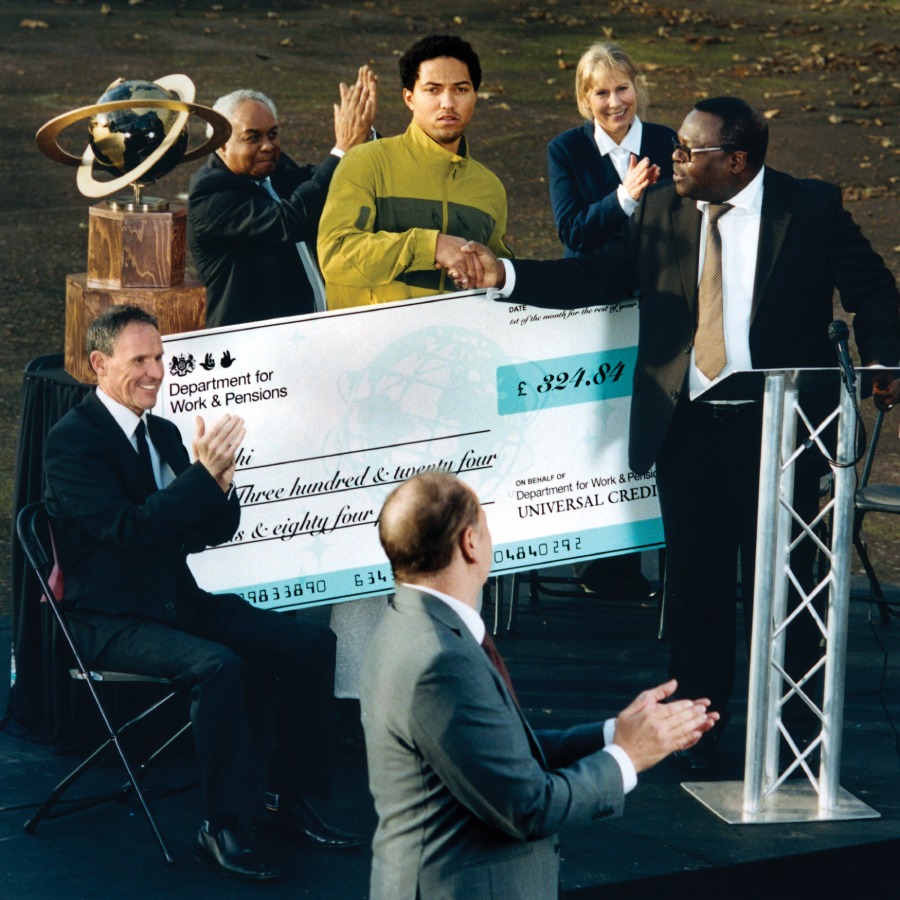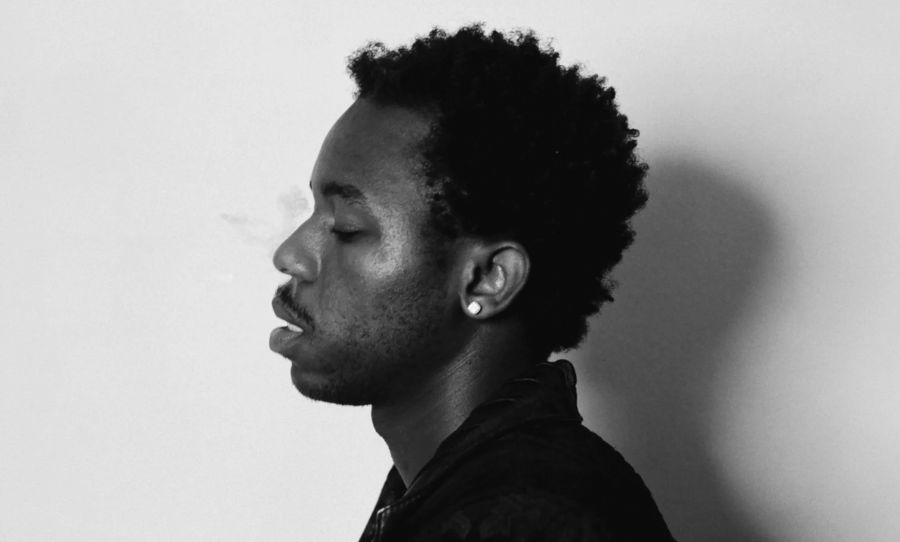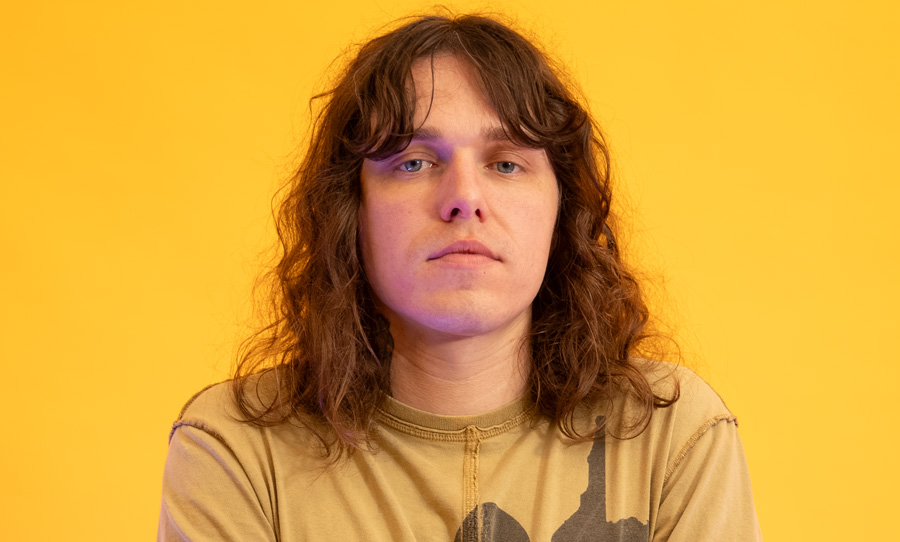North London rapper Jeshi released his debut album, Universal Credit which was named after the UK’s welfare provision.
Jeshi’s debut album is about more than just one man’s lived experience. Universal Credit tells his life story and every song is so captivating, that we suggested it would actually make a great movie.
We caught up with the lyrical mastermind to learn about his creativity, his message and his life so far.
After getting to know Jeshi a little, we realised his idealistic and poetic view of the world could give any cynic hope.

HAPPY: I’d like to start by saying congratulations on your debut album release! It’s an incredible project. Overall Universal Credit is pretty emotional which isn’t too unusual for you. It’s not just that the production is so expressive but your lyrics are very vulnerable and evocative. Would you say you are using your platform to shine a light on common struggles?
JESHI: Thank you so much. To be totally honest I don’t really think about any form of platform when I’m creating, that’s more something that comes to mind when the creative dust has settled. For me this was about telling my story, the things I’m going through and things that I’ve been through – I think the reason why it’s resonating with people is that this story or at least parts of it are a pretty universal one.
HAPPY: The album cover for Universal Credit is a great photo, you’re seen holding a giant cheque for £ 324.84. Is that the amount the government was paying out during the COVID pandemic?
JESHI: During the pandemic, it was actually an extra £20 a week so about £411 a month. They soon reduced it down to the amount that’s on the cheque on the cover photo which was pretty mad seeing as it was at a time people needed that extra help more than ever.
HAPPY: I read that you wanted to point out the hypocritical nature of the reputation around government benefits, can you tell me a little more about your perspective?
JESHI: I think people just lack empathy a lot of the time and are so quick to brand people lazy or say they’re taking from the government when they have no idea nor care to know people’s situations. That’s why the pandemic was so funny to me because everyone was getting benefits from the government because they couldn’t work but it wasn’t painted with this dirty light it often is for people going through that under normal times.
HAPPY: Thinking hypothetically now, do you think the world would be a better place if people were able to get a universal basic income?
JESHI: Of course. I mean there should be a minimum basic income that’s fair for everybody. I think it’s insane that anyone can work 5 days a week and be struggling to do the basic things. You should be able to bring kids up comfortably and live somewhere you feel happy in – you shouldn’t have to go through life with financial worry. I think it’s mad that in this day and age buying a house is an unfathomable luxury for people who work full-time jobs.
HAPPY: In your song Killing Me Slowly you’ve got this clever line where you ask ‘Ever loved something so much you could hate it?’ Can I ask you, what would that thing be?
JESHI: It’s music for me. I put my life into it and because it means so much to me it’s the thing that has the power to both make me feel highest and lowest.
HAPPY: I love the way you end Coffee with that monologue about coffee, where did that come from?
JESHI: I had a folder full of voice recordings I felt would help illuminate the pallet of the album a little more when making. I love things that feel really English and make you feel like you’re home it was important with this album.

HAPPY: Your single Two Mums is obviously an ode to the non-traditional nuclear family setup. It feels honestly more traditional these days for families to be built differently, can you tell me about your family dynamic?
JESHI: Yeah, it was just about bringing power back to that and not doing the classic woe is my me thing. My mum was a single mum who did a great job and was blessed to have unwavering support from my nan whenever it was needed. Hence the idea of Two Mums.
HAPPY: How do you think growing up so close to your Nan shaped you?
JESHI: Think it’s always good to have people from different backgrounds/generations close to you in your life. Always the best way to learn about the world through the people who brought you into it – helps you understand who you are.
HAPPY: Universal Credit feels like a movie soundtrack because of your awesome storytelling skills. If you could put your album into any movie what would it be? Or would you rather a new movie written around your tracks?
JESHI: For me, that’s important, especially on this album, it should feel like a movie because in a sense it is the movie of my life. A new movie written around the tracks would be sick… although I don’t know how interesting it would be haha.
Universal Credit is out now.
Photos supplied.
Interview by Chloe Maddren.



